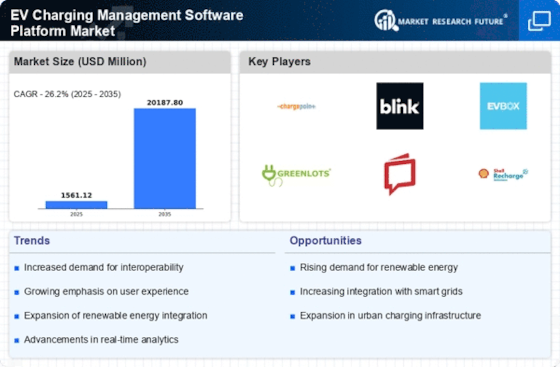Market Analysis
In-depth Analysis of EV Charging Management Software Platform Market Industry Landscape
The market dynamics of EV charging management software platforms are shaped by various factors driving the adoption and growth of electric vehicles (EVs) worldwide. As concerns about climate change and air pollution escalate, governments and consumers are increasingly embracing EVs as a cleaner and more sustainable mode of transportation. This surge in EV adoption has created a significant demand for charging infrastructure and management solutions to support the growing number of electric vehicles on the road.
One of the key drivers impacting the market dynamics is government policies and regulations aimed at promoting EV adoption. Many countries have introduced incentives such as tax credits, subsidies, and rebates to encourage consumers to switch to electric vehicles. Additionally, regulations mandating automakers to produce a certain percentage of electric or zero-emission vehicles further stimulate the market for EV charging infrastructure and management software.
Another important factor influencing the market dynamics is technological advancements in EV charging solutions. As EV technology continues to evolve, there is a growing need for more efficient, convenient, and intelligent charging solutions. EV charging management software platforms play a crucial role in optimizing charging processes, managing energy usage, and providing seamless user experiences. Innovations such as smart charging, bi-directional charging, and vehicle-to-grid (V2G) integration are driving the development of more sophisticated charging management solutions.
Furthermore, the increasing focus on sustainability and corporate social responsibility is driving businesses to invest in EV charging infrastructure and management software. Many companies are recognizing the benefits of electrifying their fleets as a way to reduce carbon emissions, lower operating costs, and enhance their brand image. This corporate shift towards electric mobility is fueling the demand for comprehensive charging management solutions that can efficiently manage fleets of electric vehicles.
Moreover, the evolving consumer behavior and preferences are also shaping the market dynamics of EV charging management software platforms. Consumers are becoming more conscious of their environmental footprint and are actively seeking out electric vehicles as a greener transportation option. With the rise of electric vehicle ownership, there is a growing demand for reliable and convenient charging solutions, both at home and in public spaces. EV charging management software platforms that offer features such as real-time charging status updates, payment integration, and route optimization are becoming increasingly popular among consumers.
Additionally, the competitive landscape of the EV charging management software platform market is intensifying as more companies enter the space to capitalize on the growing demand. Established players in the energy, technology, and automotive sectors are expanding their offerings to include EV charging solutions, while startups and smaller firms are innovating to carve out their niche in the market. This increasing competition is driving companies to differentiate themselves by offering unique features, scalable solutions, and superior customer experiences.
In conclusion, the market dynamics of EV charging management software platforms are influenced by a combination of factors including government policies, technological advancements, corporate initiatives, consumer preferences, and competitive forces. As the electrification of transportation continues to accelerate, the demand for efficient and intelligent charging solutions will continue to grow, presenting both opportunities and challenges for companies operating in this space. Meeting the evolving needs of electric vehicle owners and fleet operators will be crucial for the success of EV charging management software platform providers in the rapidly expanding market.


















Leave a Comment